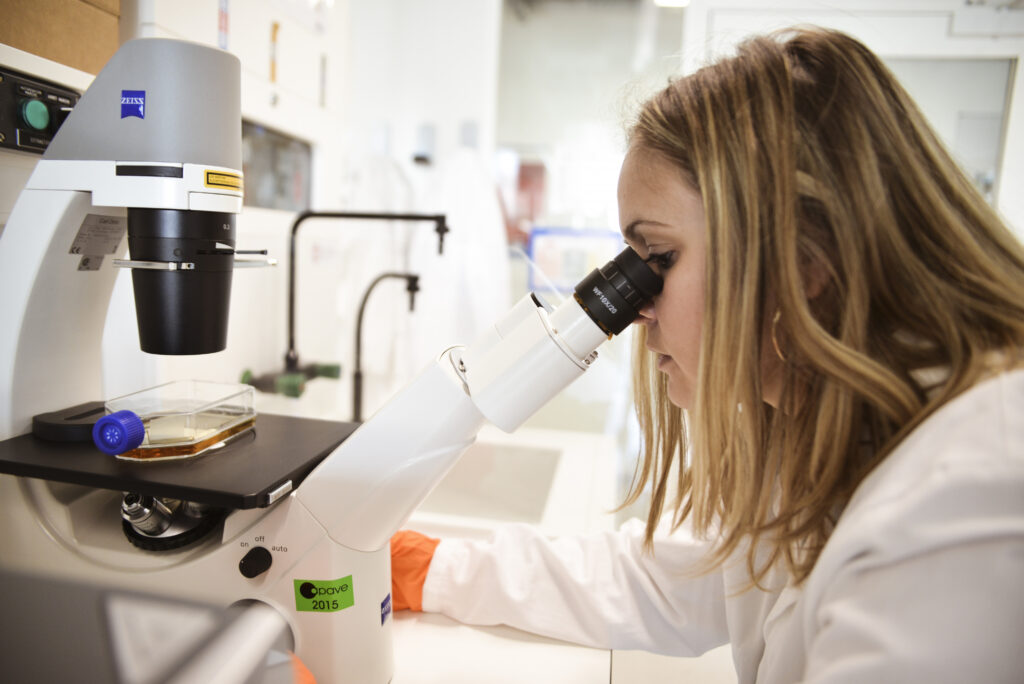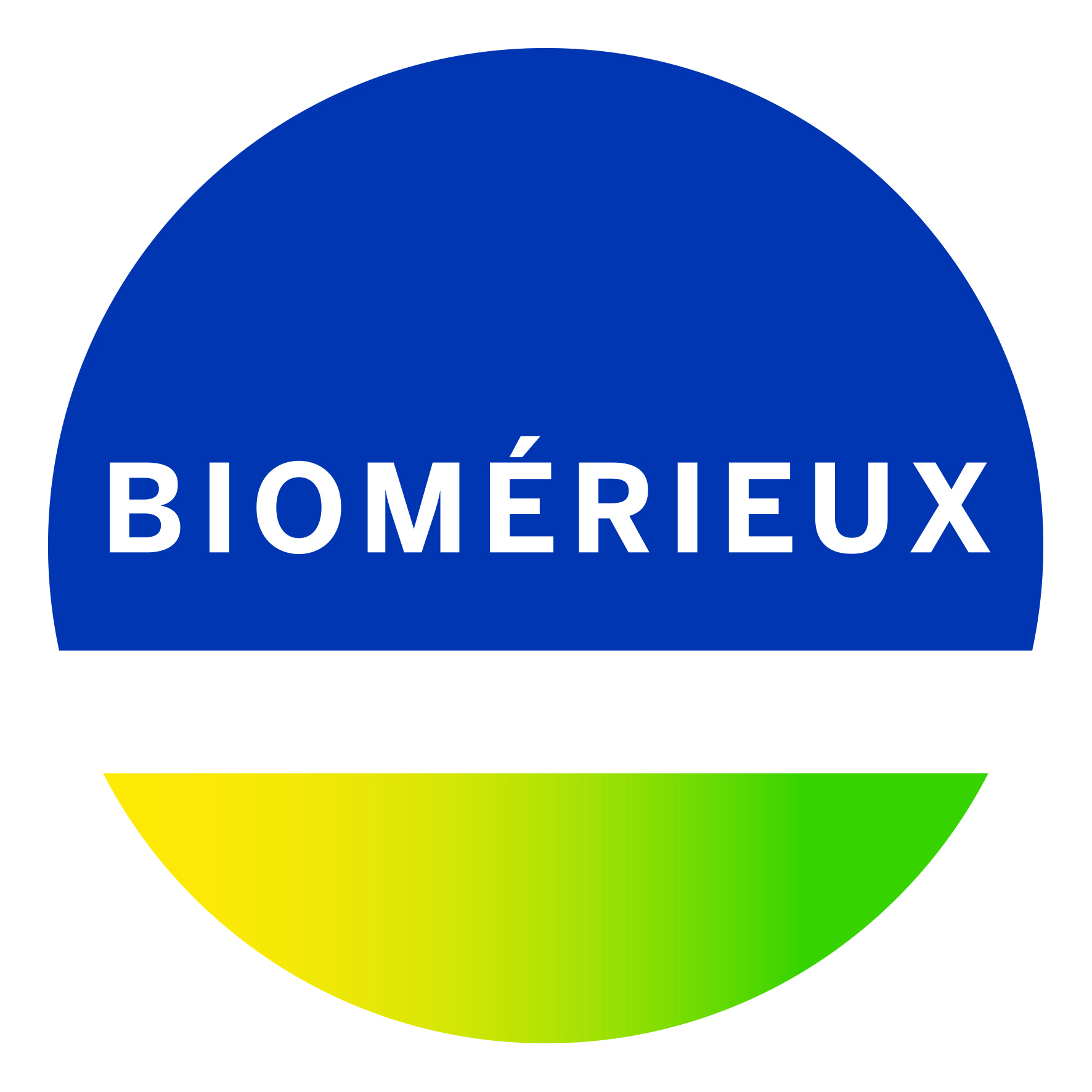We develop and validate biomarkers that provide medical added value and innovative diagnostic technologies that permit more rapid and accurate diagnosis and support drug development.
Novel technologies for the identification of pathogens, such as next-generation sequencing and multiplex molecular panels, Artificial Intelligence and Machine Learning, and new point-of-care testing methods have emerged in the field of diagnostics in the last 20 years, and these are now contributing to the personalized care of patients. This has put pressure on both small and big players in the biomedical industry to develop further rapid and accurate diagnostic solutions, based on well-validated biomarkers and detection technologies.
Against the background of this challenging and competitive landscape, we can help you improve and enrich your diagnostic solutions by supporting your R&D program in the discovery and/or validation of innovative biomarkers, in platform development, and in clinical evaluation.
Our integrated scientific and technical approach can help you develop diagnostic solutions in the fields of infectious diseases and microbiology for use in central hospital labs or near-patient testing.
To facilitate a seamless program, we collaborate with private, academic, and clinical stakeholders, and facilitate these collaborations by means of our knowledge of project management, standards, and the constraints of the in vitro diagnostics industry.
This expertise uniquely positions us as the right partner to support you in your diagnostic program.

Discovery and validation of biomarkers
We help you with the identification and validation of biomarkers using non-targeted or targeted approaches.
Our experts help you design your study, such that it is fit for purpose. With you, we determine the most appropriate analytical technology, taking into account factors such as:
- the nature of the biomarker (RNA, protein, metabolite, lipid, etc.),
- the type of specimen (tissue, organ, or biofluid), which affects the sample preparation method,
- the target application (diagnosis, prognosis, monitoring, etc.),
- the end user (laboratory or point-of-care testing).
We have a large portfolio of advanced OMICS technologies, with reliable protocols that cover the initial sample preparation step to the bioinformatic/biostatistical analysis of complex, multi-source datasets in the fields of genomics, transcriptomics, proteomics, and metabolomics.
In addition, we have a department dedicated to Artificial Intelligence and Data Science able to suggest the best analyses to perform on a specific dataset to achieve state of the art performance through biostatistics, machine learning, and deep learning algorithms.
You can read about our technologies and approaches to biomarker discovery and validation here: OMICS & xDATA.
More than 20 biomarker studies have been undertaken with industrial partners since 2015, resulting in more than 25 scientific publications and the signing of three exclusive biomarker out-licensing agreements.
You can learn more by reading about a project regarding tuberculosis here.
Development of innovative technologies
We develop components and prototype devices to facilitate faster and more accurate diagnostics for specific patient needs. Our team has cutting-edge scientific and technological expertise in the fields of biosensors, immuno-monitoring, microsystems, and optics and computational microscopy, which permits the generation of integrated, fast, and accurate diagnostic solutions.
Discover our Bioassays, Microsystems and Optical Engineering technologies and approaches here.
We help you develop and optimize lateral flow assays (LFAs) and microfluidics-based Point-of-Care (POC) tests that are tailored to the needs of your program.
Read our case study regarding Onchocerciasis.
Furthermore, we have developed breakthrough proprietary technology for high-sensitivity multiplexed analyte detection, based on the biological properties of bacterial colicin and immunity proteins that display a range of affinities, equivalent to those of avidin-biotin interactions. This technology is particularly applicable to diagnostic applications addressing unmet medical needs that require high-performance multiplex testing.
Analyse & interpretation of data
We analyze and interpret complex, multi-source data that can be used to improve diagnostics. We leverage our expertise in data analysis, multi-omics readouts, supervised integrative statistical approaches, and machine learning approaches to build predictive models and identify the most appropriate biomarker signatures for use in the clinic.
We design, implement, and deploy end-to-end digital solutions, in which computational and visual analytical tools are used to interpret the results (for example, of metagenomic profiling) and facilitate decision-making by users (for example, by means of companion software for clinicians). Such a piece of software, for 16S-metagenomic profiling, has already been out-licensed by BIOASTER.
Read a case study in the field of Metagenomics.
We use innovative approaches, featuring the latest Artificial Intelligence/Machine Learning algorithms, to analyze unstructured, complex data and create holistic predictive decision-making diagnostic models (for example, deep learning applied to microscopy imaging).

Clinical evaluation of prototype
Well-characterized human or animal biological samples, associated with high-quality clinical and microbiological data, are key to the successful evaluation of biomarkers and prototypes.
Read a case study here: COVERT.
In collaboration with our international network of clinicians, who are well-versed in unmet medical needs, we help you design clinical studies using bio-banked or prospectively collected human clinical samples. Our support for the conduct of observational and longitudinal clinical studies involves CRF, ICF, protocol-writing, and regulatory submissions. We follow Good Clinical Practice and have ISO9001 Standard Certification.
Companion Diagnostics
To improve the success and approval rates of interventions targeting cancer and infectious agents, we need to move from a one-size-fits-all approach to a personalized medicine approach, identifying who will benefit most from a given treatment.
Read case studies here: CHIKV & Onchocerco.
Companion diagnostic tests represent an efficient way of identifying such subpopulations, paving the way toward individualized treatments, based on clinical and biological evidence. We can support you in the identification and validation of biomarkers or signatures and their transformation into a companion diagnostic test that is well suited for point-of-care or laboratory end use.
Development of innovative technologies
We develop components and prototype devices to facilitate faster and more accurate diagnostics for specific patient needs. Our team has cutting-edge scientific and technological expertise in the fields of biosensors, immuno-monitoring, microsystems, and optics and computational microscopy, which permits the generation of integrated, fast, and accurate diagnostic solutions.
Discover our Bioassays, Microsystems and Optical Engineering technologies and approaches here.
We help you develop and optimize lateral flow assays (LFAs) and microfluidics-based Point-of-Care (POC) tests that are tailored to the needs of your program.
Read our case study regarding Onchocerciasis.
Furthermore, we have developed breakthrough proprietary technology for high-sensitivity multiplexed analyte detection, based on the biological properties of bacterial colicin and immunity proteins that display a range of affinities, equivalent to those of avidin-biotin interactions. This technology is particularly applicable to diagnostic applications addressing unmet medical needs that require high-performance multiplex testing.
Clinical evaluation of prototype
Well-characterized human or animal biological samples, associated with high-quality clinical and microbiological data, are key to the successful evaluation of biomarkers and prototypes.
Read a case study here: COVERT.
In collaboration with our international network of clinicians, who are well-versed in unmet medical needs, we help you design clinical studies using bio-banked or prospectively collected human clinical samples. Our support for the conduct of observational and longitudinal clinical studies involves CRF, ICF, protocol-writing, and regulatory submissions. We follow Good Clinical Practice and have ISO9001 Standard Certification.
References























